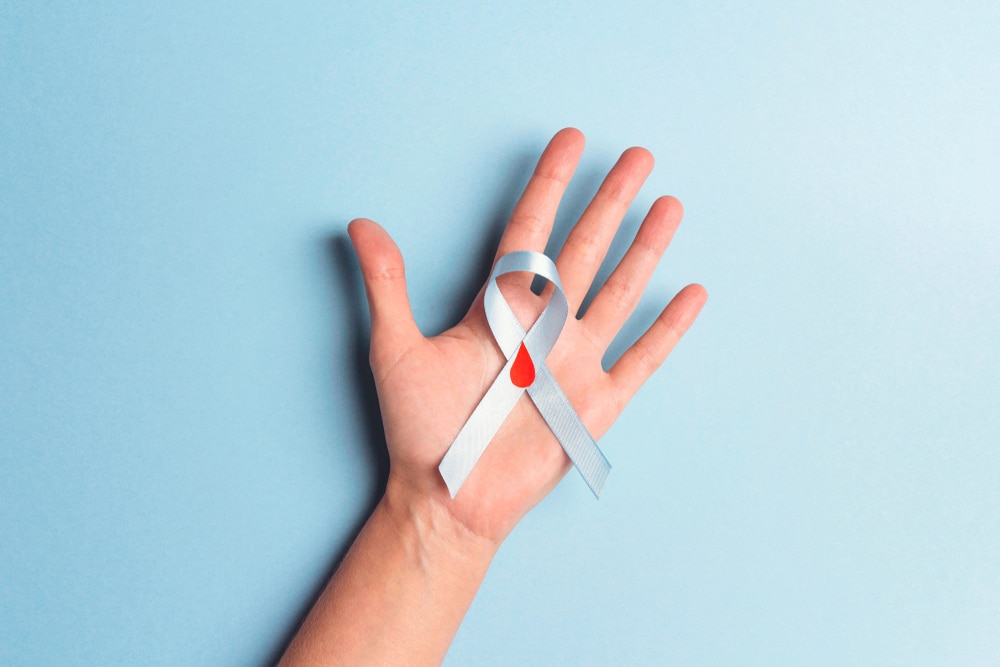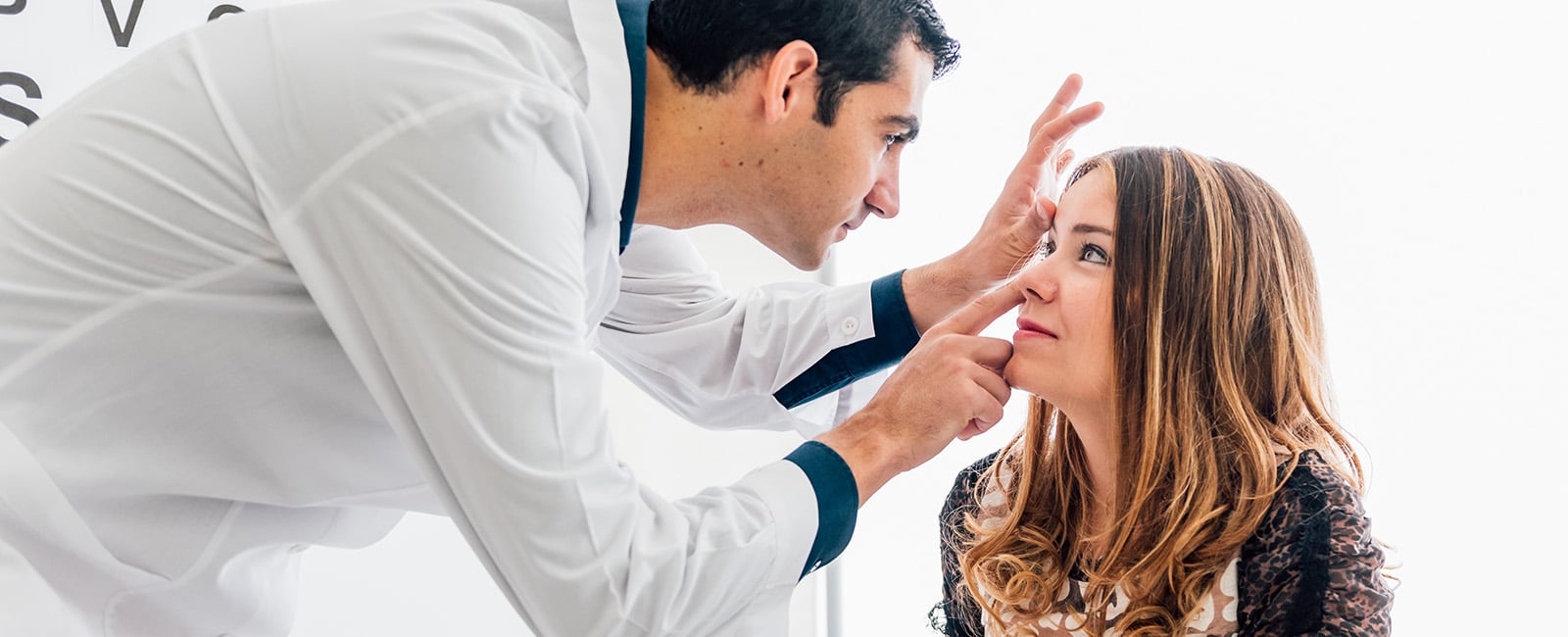Medically Reviewed by: Paul J. Stewart M.D.
Diabetic Retinopathy & The Best Foods for Eye Health
Patients who have been diagnosed with diabetes and are concerned about diabetic retinopathy often ask the ophthalmologists at Eye Center of Texas about the best foods for eye health. Often, the foods that are good for your eyes are good for the rest of your body as well, but there are some foods that may be especially good for the health of your eyes. Learn which foods you should put on your next grocery list if you want to “eat for your eyes.”
Foods good for your eyes, brain, and body
What can you eat to improve your eyesight? Which fruit is good for eyes? Are nuts good for your eyes? What is the best vitamin for eyes? And minerals — which minerals are good for eyes?
If you’ve started looking into the best foods for eye health, these are the types of questions you’re likely asking. We’ve compiled a list of whole foods, vitamins, and minerals that have been found to promote healthier eyesight.
Vitamins and minerals: The following vitamins and minerals have high concentrations of antioxidants such as lutein and zeaxanthin, which are believed to help absorb blue light — the type of sunlight that causes damage to your retina. Next to each of these is a list of common fruits, vegetables, nuts, seeds, and legumes high in that particular vitamin/mineral (For a brush-up on the types of vitamins and what they do, we recommend Harvard’s list of vitamins).
Vitamin A
Vegetables: Sweet potato, collard greens, turnip greens, kale, Swiss chard, spinach, romaine, squash, carrot, red pepper, and salmon
Fruit: Mango, cantaloupe, watermelon, grapefruit, and papaya
Vitamin C
Vegetables: Broccoli, spinach, kale, Brussel sprouts, cauliflower, sweet potatoes, winter squash
Fruit: Oranges, lemons, grapefruit, cantaloupe, strawberries, kiwi, chili peppers, yellow pepper, and guava
Vitamin E
Vegetables: Butternut squash, spinach, Swiss chard, and turnip greens
Fruit: Avocado, sweet red pepper, mango, and kiwi
Nuts & seeds: Hazelnuts, pine nuts, peanuts, almonds, brazil nuts, and sunflower seeds
Zinc
Vegetables: Peas, spinach, broccoli, okra, asparagus, shiitake mushrooms
Fruit: Cantaloupe, avocado, apricot. guava, blackberries, raspberries, blueberries, and kiwi
Nuts, seeds, legumes: Cashews, pecans, chia seeds, pumpkin seeds, flax seeds, brazil nuts, almonds, lima beans, and chickpeas
Omega-3 fatty acids, found in salmon, sardines, walnuts, soybeans, yogurt, and flaxseed have also been shown to help maintain healthy eyesight.
If I have diabetic retinopathy, how can I improve my vision naturally?
A few of the top eye health tips we can give you have nothing to do with the best foods for eye health. If you haven’t already, start exploring questions like, “What are the four stages of diabetic retinopathy?” and identify the steps you can take toward preventative eye-care, such as learning how to protect your eyes in summer.
Our second (and arguably more important) tip is to know when to seek out natural remedies vs. when to see an eye doctor. If you have diabetes and have not started searching for a “diabetic retinopathy eye doctor near me,” we recommend doing so as soon as possible.
Keep your eyes healthy at Eye Center of Texas
Eating foods that are good for your eyes is a great step toward achieving better eye health. But for those with diabetes, eating good food, even if it’s only the best foods for eye health, is only part of a comprehensive plan for taking care of your eyes.
The trained ophthalmologists at Eye Center of Texas can help spot and treat eye issues, including diabetic retinopathy, diabetes-related fast-growing cataracts, macular degeneration, cataracts, and more. Over 275 doctors in Houston refer their patients to Eye Center of Texas, home to some of the best LASIK and cataract surgeons in the country.
To request an appointment with one of our esteemed doctors, call 713-797-1010 or contact us online today.
Other Helpful Blogs from Eye Center of Texas:
- Difference Between Optometrist and Ophthalmologist
- Student Chronicles LASIK Experience
- Can Cataract Surgery Be Done on Both Eyes at Once?
- How Many Times Can You Have LASIK?
- How to Take Care of Someone After LASIK
Related Articles
Financing Options Available
Apply today to find a financing option that meets your needs.
Our Locations
Houston/Bellaire
6565 W. Loop S., Suite 650Bellaire, TX 77401
Medical Office:
713-797-1010
Medical Fax:
713-357-7276
LASIK/Near Vision:
Office: 713-395-1515
Fax: 713-357-7278
Pasadena
4415 Crenshaw RoadPasadena, TX 77504
Medical Office:
281-977-8800
Medical Fax:
281-977-8877
Sugar Land
15200 S.W. Freeway, Suite 130Sugar Land, TX 77478
Medical Office:
281-277-1010
Medical Fax:
281-277-4504
Clear Lake
455 E. Medical Center Blvd., Suite 110Webster, TX 77598
Medical Office:
281-332-1397
Medical Fax:
281-282-9152
Katy
Greenhouse Medical Plaza2051 Greenhouse Road, Suite 110
Houston, TX 77084
Medical Office:
346-547-7070
Medical Fax:
281-214-2971
The Woodlands/Conroe
100 Medical Center Blvd., Suite 118Conroe, TX 77304
Medical Office:
936-647-1610
Medical Fax:
936-647-1620


